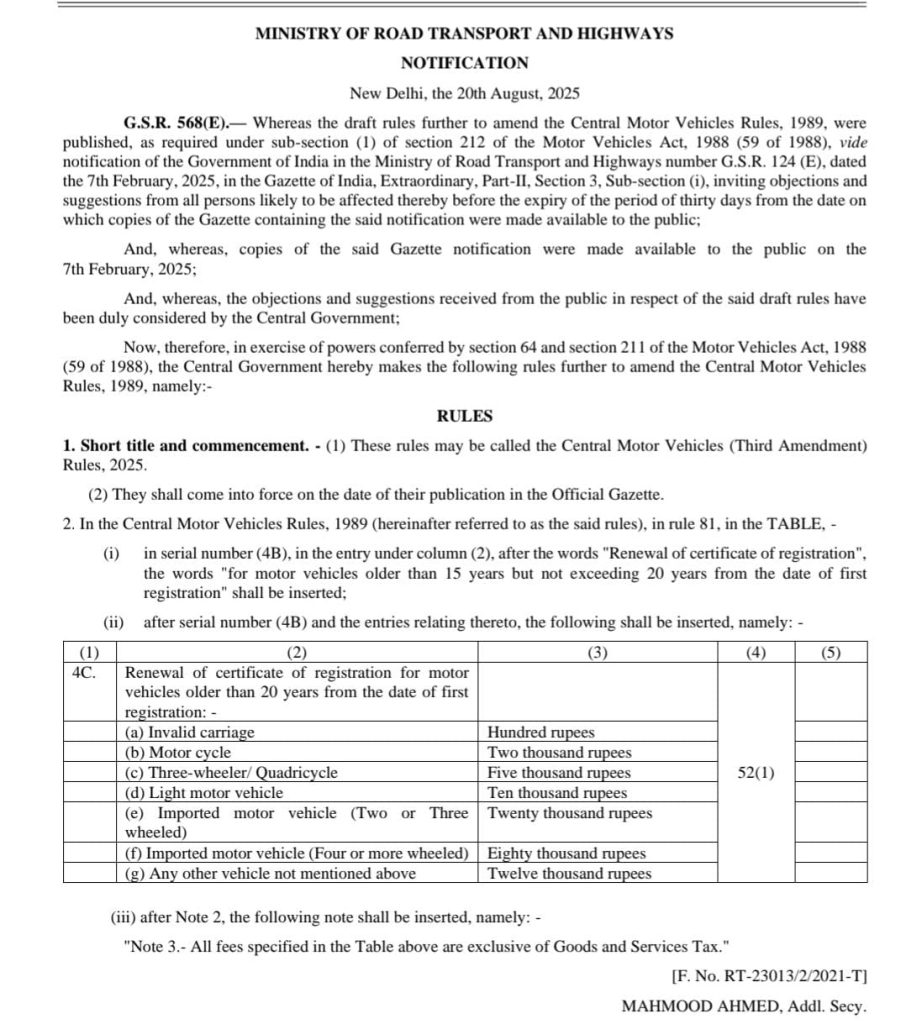New Delhi: The Ministry of Road Transport and Highways has moved to clarify a key aspect of its new vehicle scrappage policy, addressing public confusion over the age limits for private vehicles.
Contrary to a common misconception, the new rules raising registration renewal fees for vehicles over 20 years old do not extend the initial 15-year validity period of a vehicle’s registration.
The new fee structure, a cornerstone of the Voluntary Vehicle Fleet Modernization Program (VVMP), aims to create a strong financial disincentive for owners of the oldest and most polluting vehicles, not to alter the fundamental registration rules.
A Ministry official explained that the policy maintains a two-tiered approach for private vehicles:

15-Year Validity: The initial registration for a new private vehicle remains valid for 15 years from the date of purchase. After this period, the owner must apply to renew the vehicle’s registration for subsequent five-year periods, subject to a fitness test.
The 20-Year Threshold: The recent policy change introduces a significantly higher fee for vehicles that continue to be on the road beyond the 20-year mark.
This is the key change—a penalty designed to accelerate the phasing out of the oldest vehicles in the fleet. For instance, the registration renewal fee for a car over 20 years old has been hiked from ₹5,000 to ₹10,000.
“The government is not extending the life of a vehicle; it’s making it progressively more expensive to use an old one,” the official said.
“The new rule targets the most outdated vehicles, which are responsible for a disproportionate amount of vehicular emissions. The goal is to encourage owners to either scrap their old cars and receive benefits under the policy or opt for a new, cleaner vehicle.”
The distinction is crucial, as the 15-year age limit is often also associated with commercial vehicles, which must undergo mandatory fitness tests and are subject to scrapping rules after this period.
The new policy for private vehicles, while different, aligns with the broader objective of promoting a younger, more fuel-efficient, and safer vehicle fleet nationwide.


